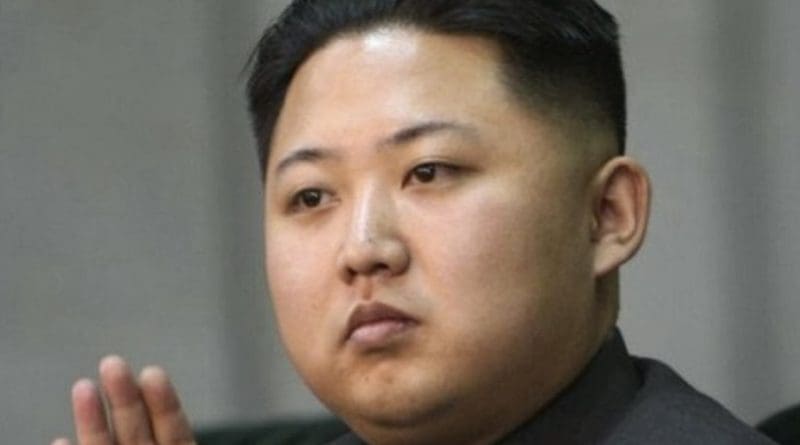7th Congress Of The Workers’ Party Of Korea: Outcomes And Implications – Analysis
By IPCS
By Shreya Singh*
9 May 2016 concluded the 7th Worker’s Party of Korea (WPK) Congress in the Democratic People’s Republic of Korea (DPRK). Although the four-day meet could be summed up as lengthy speeches replete with even lengthier socialist jargon, some salient talking points merit analysis. The bottom-line is, was the 7th WPK Congress really needed and what did it achieve?
The 7th WPK Congress’ content and context has been thoroughly examined, as with most actions of DPRK, but a little background is important. The 7th WPK Congress was held in the isolated state after a gap of 36 years – under normal circumstances party congresses are held every 5 years. Prior to the 7th WPK, several predictions were made about its possible outcomes. This commentary, with the end of the party congress, will examine the results, if any.
Key Points
Firstly, the supreme leader of DPRK Kim Jong-un talked about how as a “responsible nuclear weapons’ state” it will not use its nuclear weapons unless its’ “sovereignty is encroached upon by any aggressive hostile forces with nukes,” adding how he wanted to normalise and build peaceful relations with countries that have been previously hostile to it.
Secondly, the five-year economic plan (2016-2020) was announced, which stresses the state’s economic development and further reiterates Kim Jong-un’s ‘byungjin’ policy (twin focus on military, specifically nuclear, capability and economic welfare), contrary to Kim Jong-il’s ‘songun’ (military first policy, with an emphasis on nuclear).
Thirdly, there was a session on changing, renaming and the handing out of portfolios within the Party Congress. The foremost among them was the Chairman of the WPK – no prizes for guessing that it was given to Kim Jong-un, replacing his previous title of First Secretary.
Important Takeaways
Do these announcements have any substance or are they like most other statements from the DPRK, which are more posture and less substance? The statement that talks about being a responsible nuclear weapons state and not being the first to use can be seen as the DPRK attempting to project national accountability on the international global stage. However, this projection of itself as a responsible state cannot be seen as anything more than symbolic posturing. Nor can the statement by itself be taken as a no first use (NFU) declaration.
Some DPRK observers have deciphered the speech as an extension of a hand of friendship towards powers that have previously been hostile towards it, albeit on its own terms. However similar statements in the past have not yielded any concrete results.
The five-year economic plan for 2016-2020 itself did not reveal any changes except the recurrent emphasis on increasing production; however, neither did it undo any previous changes made. This means that the slowly but steadily growing underground, informal economy will persist and continue to grow organically.
Next, the change in portfolios had one important election, that of Kim Jong-un’s sister, Kim Yo Jong, to the Party’s Central Committee. This implies a further entrenchment of the dynastic politics of the Kim family.
The two last announcements may be taken as Kim Jong-un’s attempts to possibly revert to a more structured socialist party hierarchy, where the Chairman of the Workers’ Party is at the top. A careful examination of this reversion is more revealing than any other announcement. It points to the younger Kim’s attempts to emulate his grandfather Kim Il-sung and bring back a more systematised and formalised party structure and way of governing. This is over his father Kim Jong-il’s more capricious military-driven policies.
The five-year economic plan is reflective of Kim Jong-un taking ownership and responsibility – though symbolically – of the country’s economy, which further shows that he is more confident and his power is getting increasingly more well-established if not deeply so already. This is new, and something that his father, due to external isolation and internal factors, was unable to do.
Implications
Referring to the central question, was the 7th WPK really necessary, and what did it achieve? The answer to these two questions can be answered in two ways: from DPRK’s perspective and the perspective of the international community.
With regard to the DPRK, a calculated guess as to their intentions may be made. The 7th WPK was a much-needed show of assertiveness and self-assuredness of a style of governance that was missing during Kim Jong-il’s time. If this was indeed the intended aim, DPRK appears to have succeeded.
At the other end of the spectrum, the 7th WPK, if nothing else, definitely drew attention back to DPRK and had observers speculating about the possible outcomes and implications. According to skeptics, it was a needless exercise that did not lead to any big announcements or changes in the general direction of DPRK. Nevertheless, the election of Kim Jong-un’s sister and the five-year economic plans are important developments that merit consideration.
*Shreya Singh
Research Officer, CRP, IPCS
Email: [email protected]

